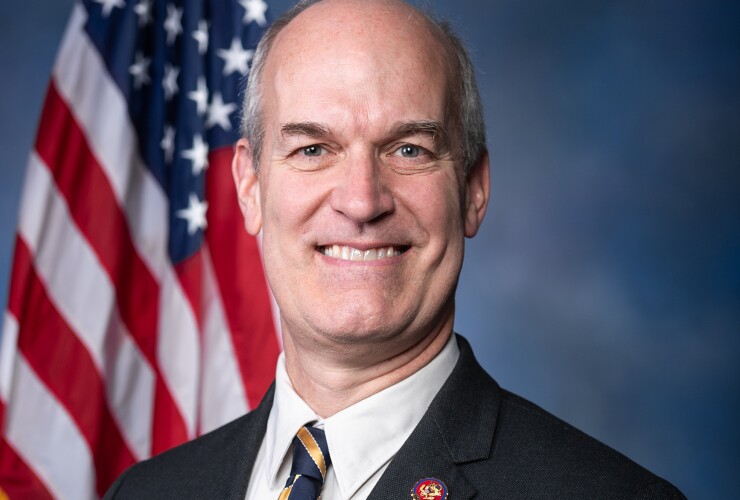
President Trump's
"It is unfathomable to me that on the first day of this administration, the President signed an executive order to pause this progress, putting millions of dollars, hundreds of thousands of jobs and thousands of projects located in every congressional district in this country at risk," said House Transportation and Infrastructure Committee Ranking Member Rick Larsen, D- Wash.
"No committee is more bipartisan than this committee."
"I want to call on every member of the full committee to look at the projects in your district, the jobs in your district, and remind the administration of this bipartisan pain that this will cause your district."
Larsen's opening statement was part of a Highways and Transit Subcommittee hearing Wednesday.
Industry leaders and lawmakers are debating the effectiveness of formula funding provided by the federal government to the states versus the discretionary grant programs that are part of the Bipartisan Infrastructure Law, also known as the Infrastructure Investment and Jobs Act.
"On top of reauthorizing existing programs, IIJA created new discretionary programs, including efforts to prioritize electric vehicle charging infrastructure, cut carbon emissions and support active transportation projects like bike lanes, among others," said Subcommittee Chairman, David Rouzer R-N.C.
"With our national debt surpassing $36 trillion and adding an additional $70,000 per minute, we must scrutinize and streamline programs to address waste and ensure our tax dollars are focused on reliable infrastructure that will help grow our GDP."
The surface transportation industry remains under duress for funding as the Highway Trust Fund, which accounts for most of the formula funding for the states is on a glide path to insolvency by 2027.
The fund is supported by fuel taxes that haven't seen a rate increase since the Clinton administration.
"An estimated 67% of formula dollars that are provided to state DOT's through IIJA have been spent out in the first two years of when they're when they're allocated," said Jim Tymon, executive director, American Association of State Highway and Transportation Officials.
"Conversely, the spend out rate for discretionary grants under that same time frame is between 1% and 7.4%."
The confusion caused by what the Executive Order means is still being absorbed and sorted out by the industry.
"There was some panic yesterday," said Tymon.
"For a short period of time, federal funding reimbursements for the formula programs was halted. We worked closely with the new administration and the folks at U.S. DOT and OMB to make sure there was clarification that the intent of that executive order was not to stop the flow of all federal dollars. But there's still some concern."
As the new administration takes control and searches for sources to pay for promised tax cuts and shrink the federal deficit, politics are already starting to interfere with bipartisan approved infrastructure projects.
"I know many of you in this room weren't for the IIJA," said Matthew Colvin, the chief of staff of the Transportation Trades Department at the AFL-CIO.
"The efforts that President Trump is taking to undermine those funds, I hope we can all agree is not a serious way of dealing with implementing your policy priorities."
"I would urge all of you to, even if quietly, to urge this administration to reverse those decisions."





